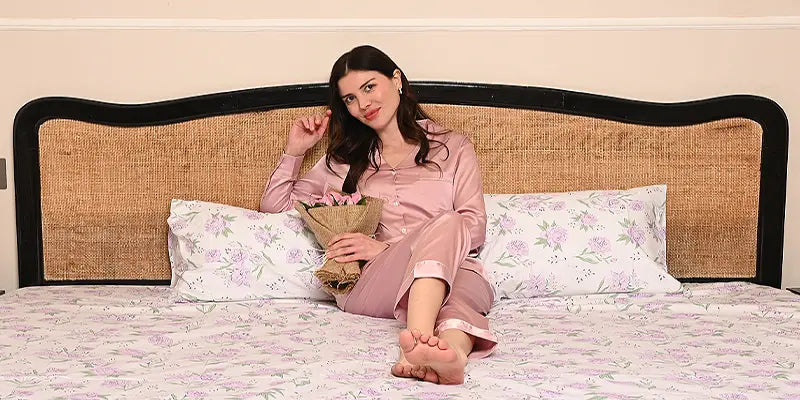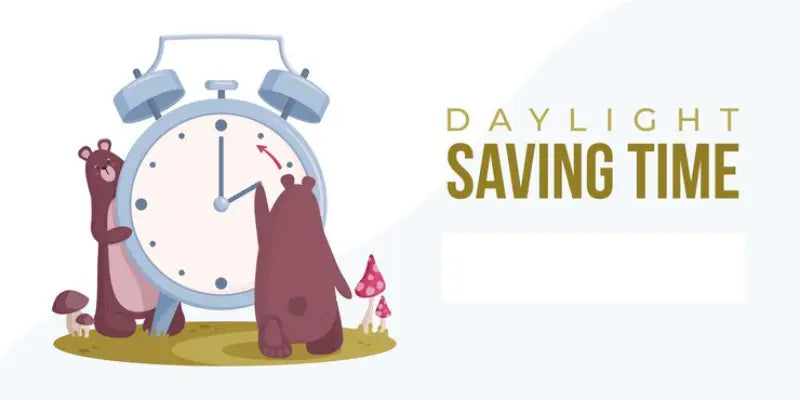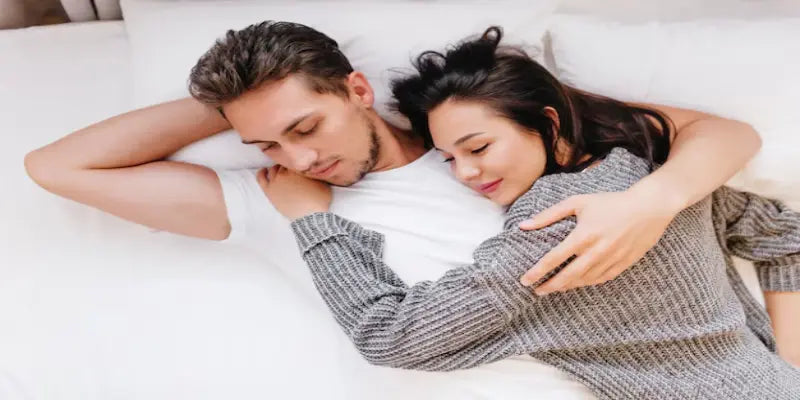
How Does Lack of Sleep Affect Us?
In today's fast paced life, we all are ignoring our sleep. Workload, stress over bills, and countless worries, all these give us sleepless nights. But do you know what changes occur in your body when you don’t get enough sleep?
Sleeping or not sleeping has a direct impact on our daily routine. By not sleeping for 24 hours, we also disrupt our body's circadian rhythm. Circadian rhythms are your internal clock for physical, mental, and behavioral changes. Along with this, what other harmful changes occur in our body when we do not sleep well at night. In this blog, we’ll explore how lack of sleep affects us and how you can improve your sleep quality.
The Effects of Lack of Sleep
When we don’t get enough sleep, our bodies and minds suffer in several ways:
Hormonal Imbalance
The first and biggest effect is hormonal imbalance. When you do not rest your body, hormones like cortisol and adrenaline increase in your body. It keeps your body active, but when these hormones become excessive, you may face skin problems, weight gain, and muscle weakness.
Heart Health
When you are sleep deprived, it can lead to many health problems, including high blood pressure and an increased risk of heart disease. Lack of sleep can increase your chances of heart attack and stroke.
Weakened Immune System
Those who are sleep deprived are more likely to get sick after being exposed to a virus, it makes you more susceptible to infections and illnesses. Also, lack of sleep can make it hard to recover from an illness.
Brain Fog
Lack of sleep can make your brain dull. Even if your body is not tired, your brain's ability to think reduces. It becomes very difficult to study or do any work. According to the CDC, not sleeping for 24 hours puts you in the same condition as drinking alcohol.
Daytime Sleepiness
If you are sleep deprived, you will feel sleepy all day the next day. This can greatly affect your work efficiency. Imagine, how will you work sitting in the office when you have sleep in your eyes.
Mood Swings
Another big effect is mood swings. Being awake 24 hours a day can make you irritable. Anger, stress, fatigue, all these can bother you. Also, swelling and dark circles also start appearing under the eyes.
Difficulty Concentrating
Sleep deprivation decreases your productivity. Difficulty in making decisions, loss of memory, all these are due to not sleeping for 24 hours. All these are just like someone consuming alcohol.
Can Sleep Deprivation Kill You?
While occasional sleepless nights may not be immediately life-threatening, chronic sleep deprivation can lead to death but there are very few cases of it. If not death, consistently getting less than the recommended amount of sleep can increase the risk of serious health issues, including heart disease, diabetes, and even stroke.
In extreme cases, prolonged sleep deprivation can lead to a condition known as fatal familial insomnia, where the person is unable to sleep at all, ultimately leading to death. The average life expectancy for someone with fatal familial insomnia (FFI) is 18 months after symptoms appear, but it can range from 7 months to 6 years.
Ways to Improve Sleep Quality
To combat the negative effects of sleep deprivation, here are some tips for improving your sleep quality:
Establish a Sleep Routine
Always be consistent with your sleep schedule, go to bed and wake up at the same time everyday, even on weekends. An irregular sleep schedule can disturb your body’s internal clock, a consistent sleep routine can help you regulate it.
Create a Restful Environment
Sleep environment plays an important role in deciding the quality of your sleep. Make your bedroom a sleep-friendly space. Keep it dark, quiet, and cool. Invest in blackout curtains, white noise machines, noise canceling earbuds, eye masks to sleep better at night.
Limit Screen Time
All the electronic screens emit blue light which can interfere with your ability to fall asleep. Try to avoid screens at least an hour before bedtime. Try to keep your mobile phone & other screens away from your bedroom.
Consider Your Pillow
A cervical pillow can make a significant difference in your sleep quality. These pillows are designed to support the natural curve of your neck, promoting proper spinal alignment. This can reduce neck and back pain, helping you sleep more soundly. A good pillow can make all the difference in achieving a restful night’s sleep.
Manage Stress
Unwinding before bed is an important step to get a good night's sleep. Practices like meditation, deep breathing, or gentle yoga can help reduce stress and promote better sleep.
Conclusion
Sleep is not a luxury; it’s a necessity for our overall health. Understanding the impacts of sleep deprivation can motivate us to prioritize rest and make healthier lifestyle choices. By implementing simple strategies like using a cervical pillow for better support. You can improve your sleep quality and, in turn, enhance your overall well-being.








